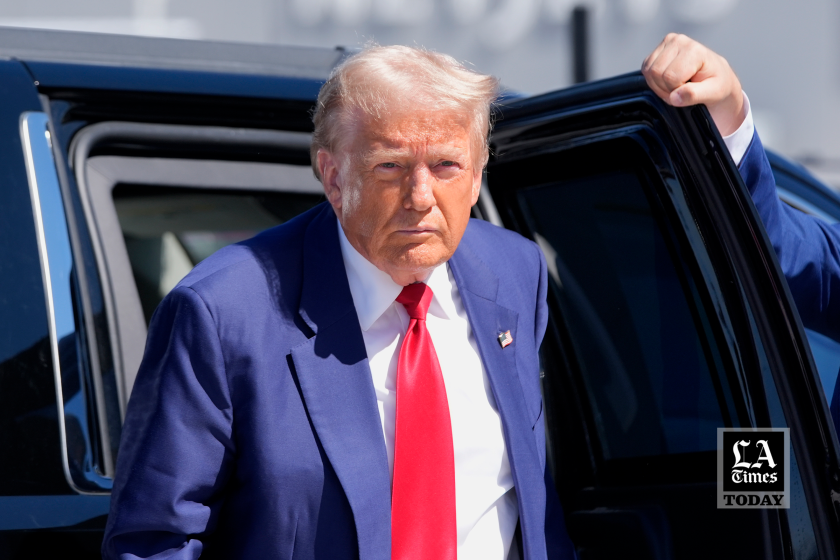Healthcare case capped a rough year for solicitor general
WASHINGTON — By the time the Supreme Court wrapped up the last of its public arguments for this term, it had been an unusually rough first year for U.S. Solicitor Gen. Donald Verrilli Jr., the Obama administration’s chief courtroom lawyer.
A respected, reserved corporate attorney, Verrilli also had a passion for defending inmates on death row. But he had not handled high-stakes, politically charged cases in the high court.
He seemed repeatedly caught off guard when his liberal arguments were met with skepticism and even scorn from the justices, a majority of whom lean to the right. It made for some awkward encounters. The more Verrilli spoke, the more the conservatives sounded persuaded to vote the other way.
His worst moment came as he rose to defend President Obama’s healthcare law and its requirement that all Americans have health insurance or pay a tax penalty. His voice sounding weak, Verrilli paused after his second sentence and coughed.
“He was hoarse. He took a sip of water, and it went down his windpipe. He couldn’t get out a sound for a few seconds. You can imagine what that felt like,” said Washington attorney Paul Smith, a friend and former law partner of Verrilli’s.
Within minutes, the solicitor general had recovered and engaged in sharp exchanges with the conservative justices. But the painful pause became a metaphor for an argument that went badly for the government. Bloggers wrote that Verrilli “choked” or “blew” the argument.
Lawyers who practice before the court — conservatives as well as liberals — rallied to his defense.
“The criticism was unwarranted. Read the transcript. Don made all the right arguments,” said Walter Dellinger, who was acting solicitor general for President Clinton.
“The court was rightly troubled by the implications of what the government is doing” in the healthcare law, said conservative Washington attorney Miguel Estrada, but he said that was not Verrilli’s fault.
But unlike his courtroom adversary, Paul Clement — a master of quick and confident replies — Verrilli is cautious and given to long explanations. And often, before he could finish, he was interrupted by a caustic comment.
As the third day of arguments neared an end, Chief Justice John G. Roberts Jr. told Verrilli he could have an extra 15 minutes to rebut Clement’s points.
“Lucky me. Lucky me,” Verrilli said softly, sounding defeated.
The administration itself seemed unprepared for the scathing attack on a law that was intended to help 40 million Americans obtain health insurance. Their lawyers also shared the view of former House Speaker Nancy Pelosi that of course Congress has the constitutional power to regulate health insurance.
By contrast, the court’s conservatives looked for a limit on this power. Could Congress force Americans to buy any product: broccoli or an electric car? For the law to be upheld, the administration needed at least one vote from the conservative side.
Last year, their prospects looked good. Acting Solicitor Gen. Neal Katyal defended the law before U.S. appeals courts in Ohio, Virginia and Georgia. He won twice and lost once. But Katyal had put off government colleagues who saw him as arrogant, and the president tapped Verrilli, a deputy White House counsel, to take his post.
The new solicitor general arrived facing a momentous, complex challenge to a 2,700-page healthcare law, and with no time for practice runs before hostile judges. And he proved to be a bit tone-deaf with the conservatives.
Verrilli got off on the wrong note last summer when he sent an emergency appeal to the justices asking them to stop Texas from executing a rapist and murderer who was a Mexican national. Carrying out the sentence could cause “serious repercussions” and upset Mexican officials, he said. Deferring to Texas over Mexico, the court’s conservative bloc rejected the appeal by a 5-4 vote.
In a case involving church schools, the solicitor general took the side of a religious school teacher fired over a disability claim and argued the law has no “ministerial exception” that permits church leaders to decide who will teach the faith. The administration lost 9 to 0, and the chief justice described its position as “extreme.”
Late last month, Verrilli returned to the theme of avoiding offense to Mexico in the final argument of the term. He urged the court to block Arizona from enforcing its stop-and-question law that targets illegal immigrants. Arresting these immigrants would “raise a significant foreign relations” problem with Mexico, Verrilli said.
That claim drew a sharp objection. “So we have to enforce our laws in a manner that will please Mexico?” Justice Antonin Scalia said.
Worse, Verrilli’s argument fell flat with liberal justices. It’s “not selling well with us. Why don’t you try to come up with something else?” said Justice Sonia Sotomayor, an Obama appointee. Her comment echoed in legal circles for days. Could the administration possibly lose the first Latino justice in an immigration case?
The rulings on healthcare and immigration are not due until late June.
It is certainly not unusual for the president to lose big in the Supreme Court. Clinton lost 9 to 0 in the Paula Jones case, and President George W. Bush suffered three defeats over his handling of the Guantanamo Bay prison. But those losses were not blamed on the chief lawyer.
Irv Gornstein, a former government lawyer who heads the Supreme Court Institute at Georgetown Law School, said the same should be true in the healthcare case.
“Don gave the government’s best argument,” he said. “If the law goes down, it will be because five justices think it’s unconstitutional.”
More to Read
Get the L.A. Times Politics newsletter
Deeply reported insights into legislation, politics and policy from Sacramento, Washington and beyond. In your inbox three times per week.
You may occasionally receive promotional content from the Los Angeles Times.











